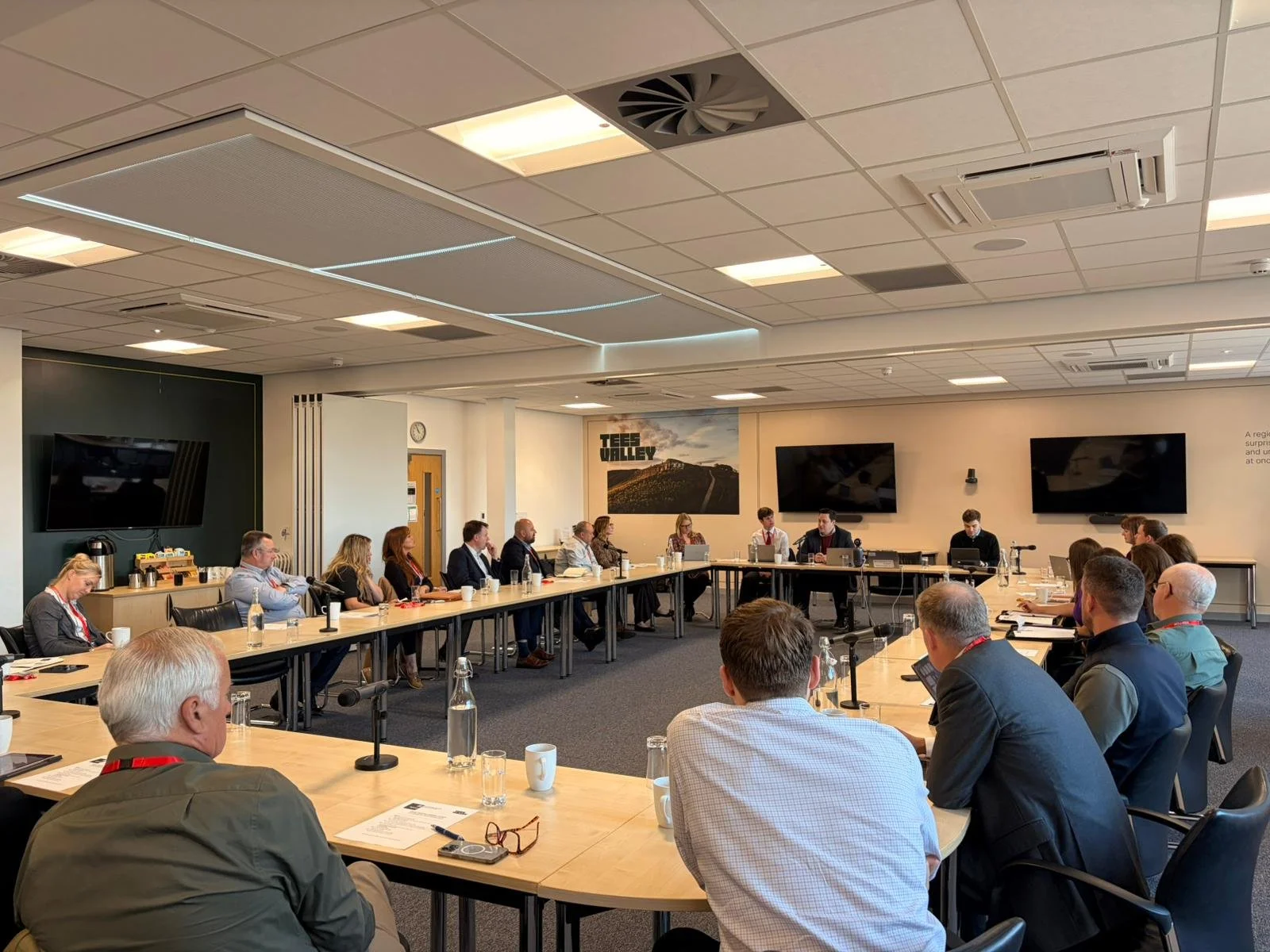
The ‘Trade Triangle’ Inquiry
Inquiry Launch Summary
On 9 October 2025, the APPG officially launched the Trade Triangle Inquiry at Teesside Airport, with Lord Houchen, Mayor of Tees Valley, chairing the session.
The launch included a roundtable discussion with 21 representatives from small and medium-sized enterprises (SMEs) across the Tees Valley region. This session provided initial verbal evidence and marked the formal start of the Inquiry. A written call for evidence will follow.
Background: The Trade Triangle
The Trade Triangle is a term coined by the APPG to describe the suite of strategies released by the Department for Business and Trade over Summer 2025. The Inquiry seeks to explore how these strategies intersect and complement one another, and how they can be effectively implemented at the local level to support SMEs across the UK’s nations and regions.
Inquiry Objectives
The Inquiry aims to:
Understand how national strategies translate into local impact.
Identify how SMEs can better access and benefit from these strategies.
Explore the role of regional governance in supporting SME growth.
The Strategy seeks to act as a roadmap for industry and policy stakeholders to recognise which priorities the government are seeking to pursue and why.
This strategy outlines eight priority sectors where the UK is positioned to gain competitive advantage due to their dynamic and innovative nature:
Additional announcements include:
SMEs can access digitalisation grants and innovation finance through the British Business Bank, which has increased its capacity to £25.6 billion.
£22.6 billion R&D funding by 2029/30
British Industrial Competitiveness Scheme to reduce electricity costs for certain industries by up to 25%
Strategic Sites Accelerator: a £600 million fund to attract investment into Industrial Strategy Zones and AI Growth Zones
2. The Trade Strategy
This strategy sets out the UK’s approach to international trade, emphasising agility in response to global shocks. Key elements include:
Ricardo Fund: investment to reduce regulatory burdens for exporters
UK Export Finance (UKEF): expanded by £20 billion to increase access to export financing
Local Chambers of Commerce and trade associations can assist businesses in navigating these reforms
Regional export advisers and Growth Hubs can help SMEs access these tools
A dual-track approach to strengthening trade relations with both the European Union and the United States, rejecting the notion of a binary choice
Capitalising on the benefits presented by the UK-India Free Trade Agreement
3. The Small Business Plan
This plan outlines support for SMEs through:
The Business Growth Service, a new advisory platform
A 25% reduction in domestic regulatory burden
£1.2 billion annual investment in skills and apprenticeships by 2028/29, including support for SMEs accessing T-Levels and apprenticeships
Call for Written Evidence
We invite written submissions by 6 March 2026. Responses will be summarised and published shortly thereafter. Please use the form below to submit your responses, or your submissions to: oliver.greensmith@export.org.uk.
Thank you for taking the time to engage with our inquiry. The responses you give will help shape the direction of the APPG.
